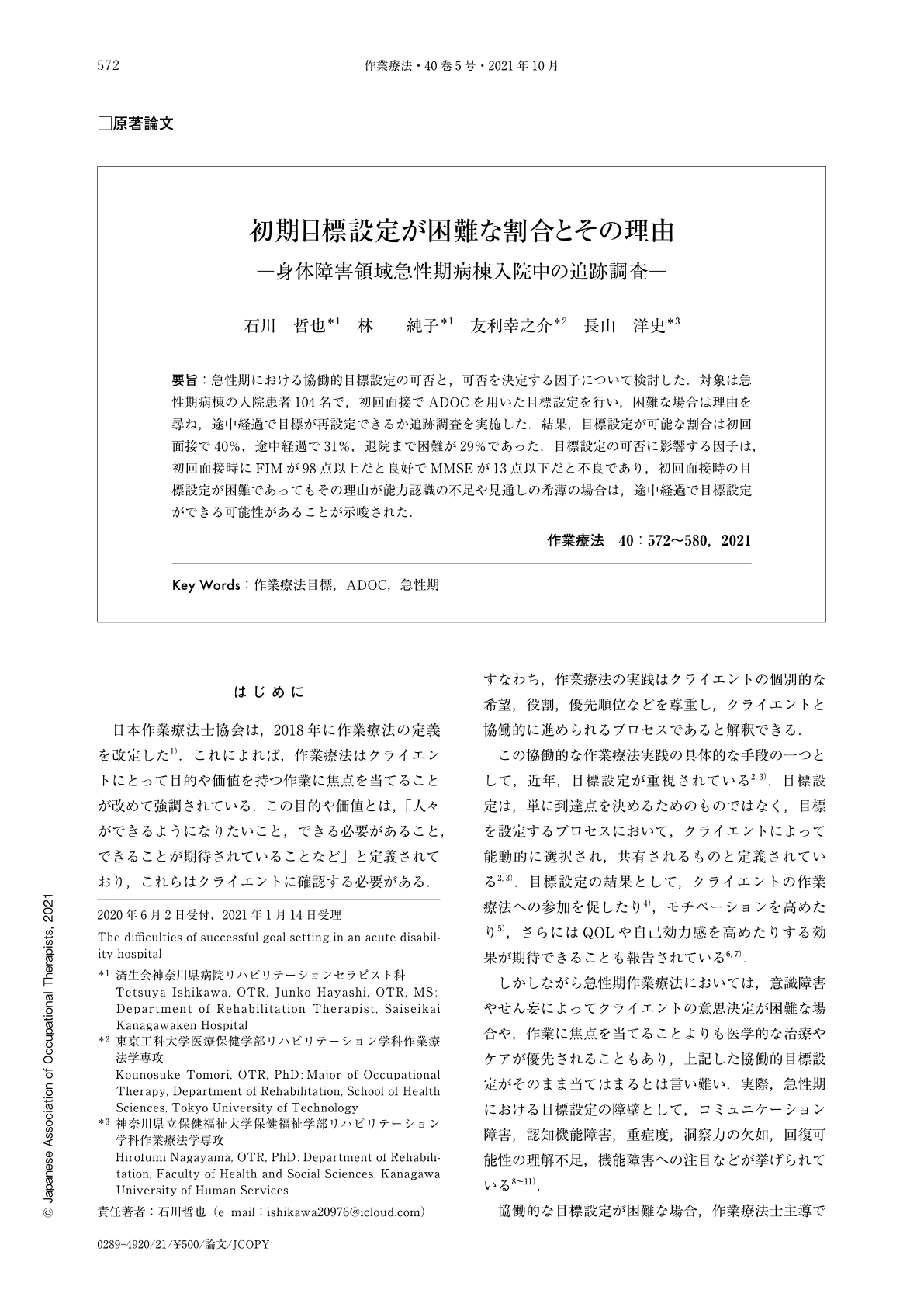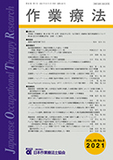Japanese
English
- 販売していません
- Abstract 文献概要
- 1ページ目 Look Inside
- 参考文献 Reference
- サイト内被引用 Cited by
要旨:急性期における協働的目標設定の可否と,可否を決定する因子について検討した.対象は急性期病棟の入院患者104名で,初回面接でADOCを用いた目標設定を行い,困難な場合は理由を尋ね,途中経過で目標が再設定できるか追跡調査を実施した.結果,目標設定が可能な割合は初回面接で40%,途中経過で31%,退院まで困難が29%であった.目標設定の可否に影響する因子は,初回面接時にFIMが98点以上だと良好でMMSEが13点以下だと不良であり,初回面接時の目標設定が困難であってもその理由が能力認識の不足や見通しの希薄の場合は,途中経過で目標設定ができる可能性があることが示唆された.
The aim of this study is to examine the rate of success in predicting successful collaborative goal setting. We conducted goal setting with 104 inpatients in an acute care hospital using ADOC. If the goal setting could not be completed, we asked the patients why and followed up in another session. The success rate with collaborative goal setting is as follows: first session 40%, until discharge 31%, and never 29%. The predictor of successful goal setting was >98 of FIM total scores, and unsuccessful was <13 of MMSE scores. The reason for the difficulty of goal setting was“lack of reasonable perception for their abilities” and “lack of prospects in future.”

Copyright © 2021, Japanese Association of Occupational Therapists. All rights reserved.


